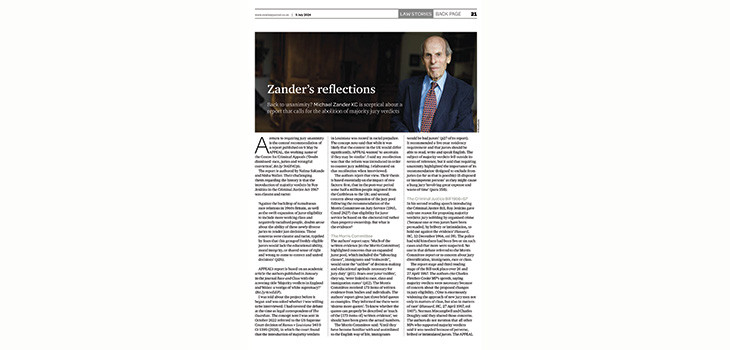
Our research* on the racist and classist origins of majority jury verdicts considers why the principle of unanimity was abandoned in 1967 and explores the current implications of majority verdicts. In his recent NLJ article, Professor Michael Zander KC challenged our conclusion that racism and classism influenced the introduction of majority jury verdicts in England and Wales, and rejected our proposal to restore the principle of unanimity (see ‘Zander’s reflections’ (NLJ, 5 July 2024). Although we welcome Professor Zander’s response, as argument and counterargument only produce better knowledge, we would like to respond.
Do majority verdicts have racist & classist roots?
Yes. We considered findings covering extensive groups of archival material in coming to this conclusion. First, we looked at material covering race relations and the political climate in 1960s Britain. This material revealed a backdrop of public anxieties about immigration and the rise of anti-racist activism, with governments introducing successive legislation









